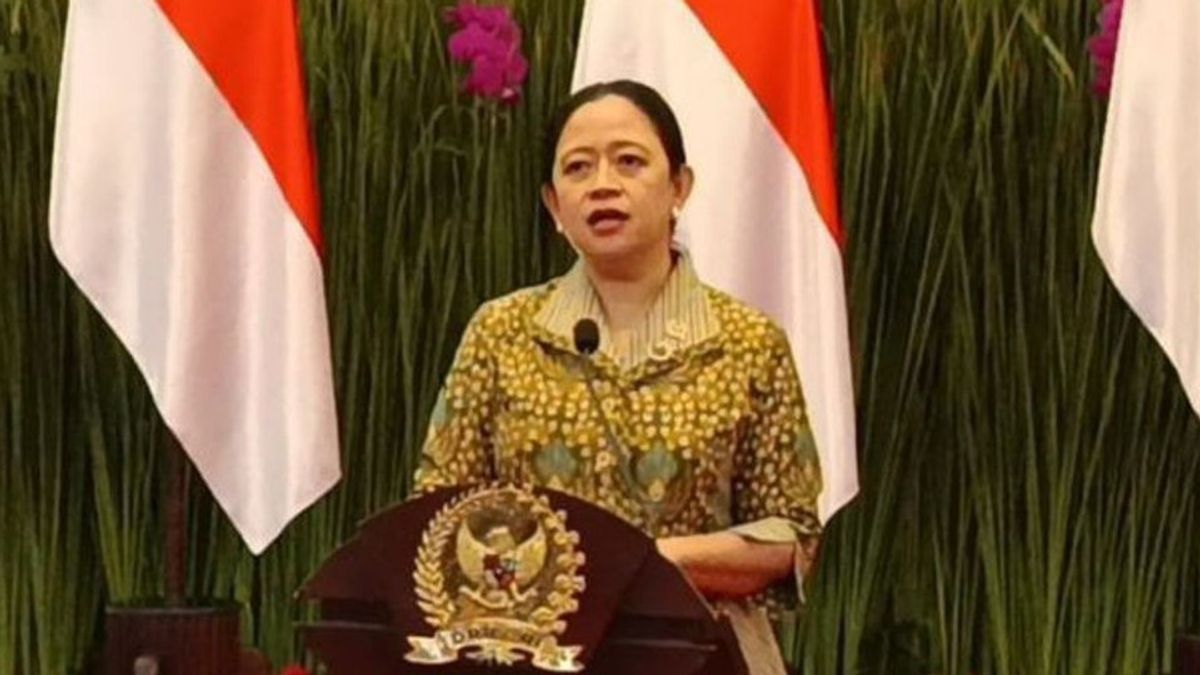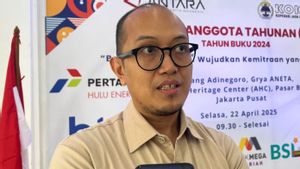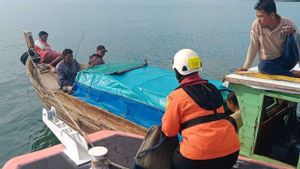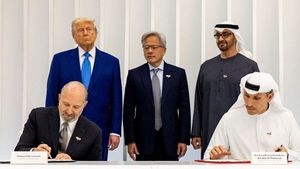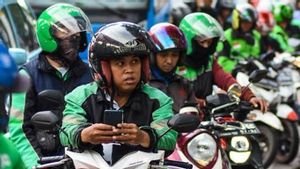JAKARTA - Chairman of the Indonesian House of Representatives, Puan Maharani, highlighted the findings of 16 cosmetic items that were proven to contain dangerous and prohibited materials. Puan said these findings were not only a matter of violation of regulations, but were related to the safety of millions of consumers, especially women who were the main users of cosmetic products in Indonesia.
"The findings of 16 cosmetic items containing hazardous and/or prohibited materials are a serious warning to all of us. These products are widely used by women from various circles every day," said Puan Maharani, Tuesday, April 22.
Puan said the government must be present to ensure consumer protection, especially women as the main users of cosmetics have the right to get maximum protection from the state.
"Don't let the use of cosmetics by women who want to appear confident and take care of themselves actually lead to serious health risks. Protection for consumers must be guaranteed," he said.
Puan also asked the government to ensure that cosmetic products used daily by the community, from teenagers to housewives, have gone through a strict monitoring process. Cosmetic products must also meet security standards.
"The government must ensure that every cosmetic product used by the community has met safety and transparency standards. This is not only a matter of health, but a matter of dignity and the right to protection as citizens," said Puan.
Meanwhile, the Indonesian Food and Drug Supervisory Agency (BPOM) bends 16 cosmetic items containing hazardous and/or prohibited materials. The findings were obtained from periodic supervision during the January-March period (triwulan I) 2025.
From the cosmetic findings containing the hazardous and/or prohibited ingredients, 10 items are cosmetics produced based on the production contract, while the other 6 items are imported cosmetics.
Based on the sampling and testing carried out by BPOM, it was found that the 16 cosmetic items contained hazardous and/or prohibited materials. Dangerous and/or banned ingredients found in cosmetic findings, namely mercury, retinoate acid, hydroquinon, lead, and K10 red dye.
Puan said that the findings of these dangerous cosmetics also reveal weaknesses in the cosmetic industry's surveillance system, especially products based on production contracts and imported goods.
"Supervision must be carried out actively, thoroughly, and supported by technology. The government must strengthen cross-institutional coordination, including with industry players, so that the product distribution and labeling system becomes transparent and accountable," he said.
On the other hand, Puan also responded to the findings of the Halal Product Guarantee Agency (BPJPH) together with BPOM regarding 9 batches of processed food products that were proven to contain pork elements but did not include the information in the packaging.
Puan said that for Muslims, this issue is not just an administrative matter or labeling, but concerns beliefs, principles of life, and basic rights as consumers to obtain correct information. Therefore, he encouraged that the synergy between BPJPH and BPOM and related ministries should be improved.
"There must be an early warning system and a periodic audit of the labeling, because the slightest error has a major impact on the Muslim community. The impact of Social and Economic", explained Puan.
Not only has an impact on consumer confidence, these findings can also hit producers economically. Brands involved will experience boycotts, loss of customer loyalty, and even face lawsuits," added the former Coordinating Minister for Human Development and Culture.
SEE ALSO:
Puan also encouraged that the supervision of halal food must be addressed immediately to maintain the image of the national food industry which is trying to strengthen its position in the halal market globally. According to him, if it is not fixed immediately, Indonesia will lose international confidence in exports of halal products.
"This case is an important momentum to encourage reforms in the supervision of halal products in Indonesia. As a country with the largest Muslim population in the world, Indonesia should be a pioneer in the guarantee system for strong, transparent, and accountable halal products," he concluded.
The English, Chinese, Japanese, Arabic, and French versions are automatically generated by the AI. So there may still be inaccuracies in translating, please always see Indonesian as our main language. (system supported by DigitalSiber.id)
